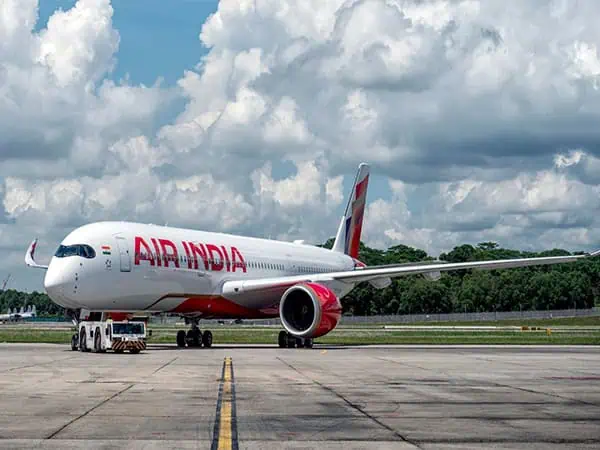Emergency Declared Mid-Air
Passengers on board Air India’s Delhi-Indore flight faced a tense situation on Sunday when the aircraft’s pilots declared a “mayday” after receiving a fire alert in one of the engines. The Airbus A320 neo aircraft, operating under flight number AI2913, had taken off from Delhi’s Indira Gandhi International (IGI) Airport for Indore but was forced to return shortly after departure. The fire indication in the right engine, identified as engine number two, triggered the distress call.
The incident took place after the flight had been airborne for over 30 minutes. Following standard emergency protocols, the Air Traffic Control (ATC) in Delhi announced a full emergency and positioned firefighting and rescue teams on standby as the aircraft prepared to land.
Safe Landing and Passenger Evacuation
Despite the scare, the landing was carried out smoothly by the experienced cockpit crew. Sources confirmed that all passengers and crew members disembarked safely after the aircraft was brought to a halt at IGI Airport. Air India later issued a statement assuring that safety remained its foremost priority and confirmed that an alternate aircraft had been arranged to carry passengers onward to Indore.
“Flight AI2913, operating from Delhi to Indore on August 31, air-returned to Delhi shortly after takeoff, as the cockpit crew received a fire indication for the right engine,” the airline said in an official statement.
Aircraft Grounded for Detailed Inspection
The affected Airbus A320 neo has been grounded for a detailed engineering inspection to determine the cause of the fire indication. Aviation industry sources indicated that such warnings could result from sensor malfunctions or actual engine anomalies, and only a thorough technical review will reveal the true cause.
The Directorate General of Civil Aviation (DGCA), India’s aviation regulator, is expected to review the incident. While Air India has confirmed the emergency return, the DGCA has not yet issued a formal statement regarding the mayday call or potential regulatory action.
Mayday Calls in Aviation
A mayday call is a globally recognized distress signal used by pilots to indicate a life-threatening emergency. Declared only in situations involving severe technical faults, onboard fire, or other risks to passenger safety, the call immediately triggers ground emergency protocols at airports. In this case, the declaration allowed Delhi’s ATC to prioritize the Air India flight’s landing and ensure rescue services were ready in case of escalation.
Heightened Safety Measures Post-Crash
The emergency comes at a time when Air India is under close scrutiny following a tragic crash on June 12 involving a Boeing 787-8 Dreamliner operating between Ahmedabad and Gatwick, London. That crash claimed the lives of 241 of 242 passengers and several individuals on the ground. Since then, the Tata Group-owned airline has significantly enhanced fleet-wide safety checks, ensuring additional layers of precaution before takeoff.
Sunday’s engine fire alert is expected to reinforce the need for continued vigilance in aircraft maintenance and monitoring, especially given the heightened sensitivity in the aftermath of recent tragedies.
Passengers React to Scare
Several passengers reportedly expressed relief after the emergency landing but admitted to being alarmed during the mid-air announcement. While the crew maintained calmness inside the cabin, the unexpected return raised concerns about the frequency of technical alerts in modern fleets. Aviation experts, however, emphasized that declaring mayday is a precautionary measure and reflects a safety-first approach rather than indicating an actual engine fire in every case.
What Lies Ahead
The DGCA’s investigation will be closely watched as it will determine whether the incident was caused by an engine malfunction, a false alarm, or a systems failure. The results will not only decide the future operations of the grounded aircraft but also influence broader safety audits across Air India’s fleet.
For now, the airline continues to stress its commitment to passenger safety, assuring travelers that emergency protocols and rapid response systems are in place to handle such incidents effectively.








